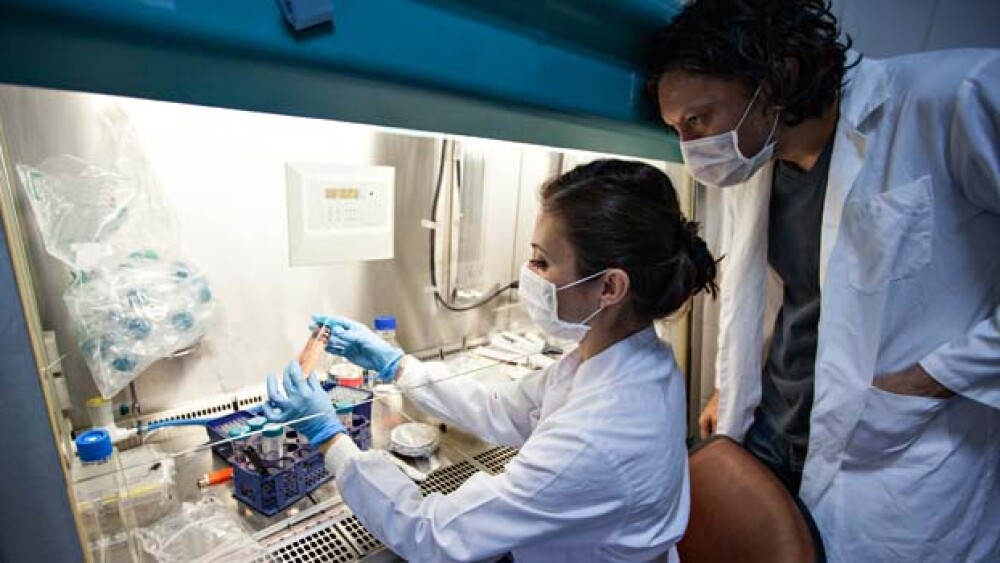Another attempt at developing a treatment for Alzheimer’s has hit a wall.
Another attempt at developing a treatment for Alzheimer’s has hit a wall. This morning, Biogen and partner Eisai announced an Independent Data Monitoring Committee determined that BAN2401, an anti-amyloid beta protofibril antibody, would not meet endpoints in a mid-stage trial.
Shares of Biogen fell about 4 percent this morning to $319.65 after the announcement was made.
The IDC said BAN2401 did not meet the criteria for primary endpoint success in the trial based on a Bayesian analysis at 12 months. To have been considered a success at the 12-month analysis, BAN2401 would have had to have shown an 80 percent or higher probability of achieving a Clinically Significant Difference based on the Bayesian analysis.
Although the IDC has issued a gloomy forecast for the trial, the companies said that the blinded study will continue as part of a predefined protocol. A comprehensive data analysis will be demonstrated at 18 months in hope of demonstrating clinically significant results, the companies said in a joint statement this morning. The results of the final analysis are expected to be obtained during the second half of 2018.
“By using Bayesian statistics in this uniquely-designed trial we had hoped that it would enable us to demonstrate clinical success faster than more traditional study designs. We now await the final study analysis which will be conducted after 18 months of treatment, which represents an amount of treatment time that is considered as appropriate for assessing efficacy in disease-modifying agents for Alzheimer’s disease,” Lynn Kramer, chief medical officer for Eisai’s neurology business group, said in a statement.
RBC Capital Markets analyst Brian Abrahams told Reuters the decision to continue the trial indicates that some benefits are being observed.
The Phase II trial was studying the effects of BAN2401 on patients with prodromal or mild Alzheimer’s disease (early Alzheimer’s disease) who had positive biomarkers for brain amyloid pathology. At 12 months, the efficacy of five dosing groups taking BAN2401 was evaluated. That evaluation led to the IDC’s negative opinion of the study outcome.
The two companies said the final 18-month analysis of the trial will contain a comprehensive evaluation that includes an assessment of changes in biomarkers such as brain amyloid levels as measured by amyloid PET and total hippocampal volume using vMRI.
Biogen and Eisai have a developmental partnership for three different Alzheimer’s disease therapies. In addition to BAN2401, the companies are developing Elenbecestat, an oral inhibitor of beta. By targeting beta secretase, Elenbecestat is being developed to prevent beta-peptide formation from the amyloid precursor protein - APP - and thus subsequently prevents amyloid beta deposits building in the brain.
In October, Biogen expanded its collaboration with Japan-based Eisai over development of aducanumab. Aducanumab, a human recombinant monoclonal antibody, targets amyloid plaque and amyloid beta oligomers. Last month, Biogen unveiled data from the long-term extension of its ongoing Phase 1b study of aducanumab. In a presentation at the Clinical Trials on Alzheimer’s Disease meeting in Boston, data showed patients on the treatment experienced declines in amyloid plaque. The results were built on early data Biogen released from the Phase Ib trial in December. That early data showed patients receiving the drug showed a drop in Alzheimer’s-related beta-amyloid plaque in the brain, as well as continued to show a slowing of cognitive declines.
Although BAN2401 has not hit its Phase II goals, that does not mean the anticipated data of aducanumab is doomed to failure. The two are not the same antibody.





